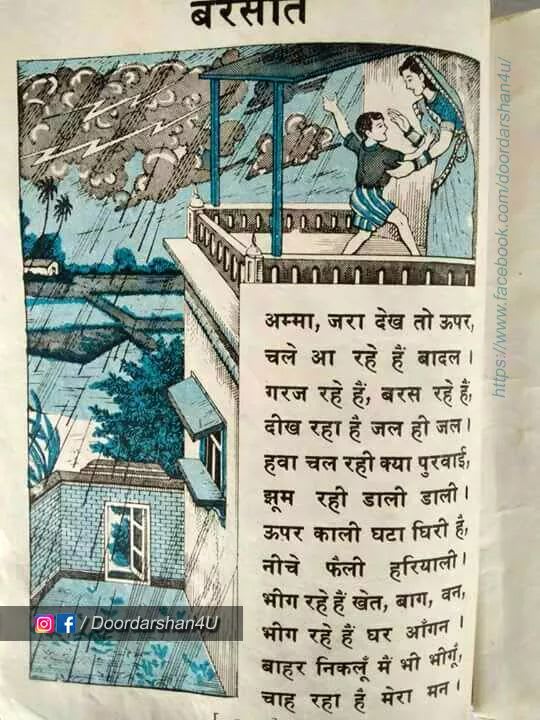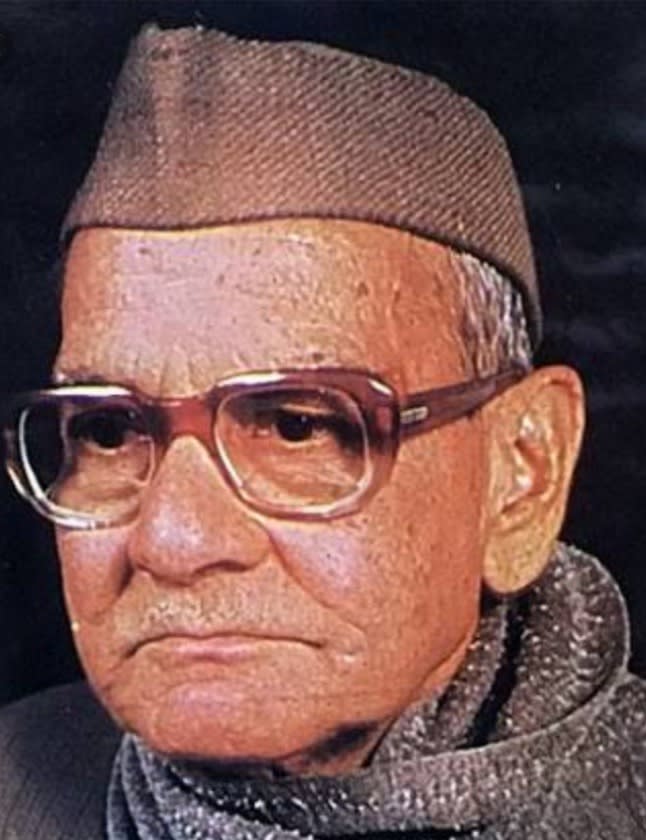आगरा के गौरव: काव्य शिरोमणि द्वारिका प्रसाद माहेश्वरी

आज आगरा नगर सुप्रसिद्ध बाल साहित्यकार द्वारिका प्रसाद माहेश्वरी की 22 वी पुण्यतिथि पर उन्हें नमन कर रहा है। आगरा को यह गौरव प्राप्त है कि माहेश्वरी जी जैसे वरिष्ठ साहित्यकार ने यहाँ जन्म लिया और संपूर्ण देश में आगरा का नाम रोशन किया।
द्वारिका प्रसाद माहेश्वरी बाल गीतायन को रचकर बच्चों के गांधी के नाम से मशहूर हो गए। बाल गीतायन में उन्होंने बच्चों को 176 कविताओं का तोहफा दिया था। उनकी कविताएं आज भी बच्चों के स्कूली पाठ्यक्रम में शामिल हैं। हर रचना से बाल मन आज भी प्रेरित होता है। उनकी अधिकांश रचनाएं देश प्रेम, वीरता, प्रकृति आदि पर आधारित हैं।
बच्चों के कवि सम्मेलन का प्रारंभ और प्रवर्तन करने वालों के रूप में द्वारिका प्रसाद माहेश्वरी का अभूतपूर्व योगदान है। उन्होंने बाल साहित्य पर 26 पुस्तकें लिखीं। पांच पुस्तकें नवसाक्षरों के लिए भी लिखीं। उन्होंने अनेक काव्य संग्रह और खंड काव्यों की भी रचना की।

प्रसिद्ध जनकवि गिरीश अश्क उन्हें स्मरण करते हुए कहते हैं मेरे लिए परम सौभाग्य की बात ये रही कि 1996 में मेरे प्रथम काव्य संग्रह “आखिर कब तक ?” का नागरी प्रचारिणी सभा में विमोचन कालजयी रचनाकार आदरणीय द्वारिका प्रसाद माहेश्वरी जी के करकमलों से हुआ था।
आगरा राइटर्स एसोसिशन के अध्यक्ष व वरिष्ठ साहित्यकार डॉ अनिल उपाध्याय ने द्वारिका प्रसाद माहेश्वरी को नमन करते हुए इस बात पर क्षोभ प्रकट किया कि आगरा का साहित्यजगत अपने ही विद्वजनों को विस्मृत करता जा रहा है।
सोशल मीडिया पर काफी संख्या में लोग उनकी कविताओं को पोस्ट करके उन्हें याद कर रहे हैं व अपने श्रद्धा सुमन समर्पित कर रहे हैं। इनमें साहित्यकार डॉ अंगद धारिया,परमानन्द शर्मा,अशोक कुमार अश्रु,सुशील सरित,भरतदीप माथुर आदि शामिल हैं।
उनकी प्रमुख रचनाओं में से कुछ इस प्रकार हैं –
सामने पहाड़ हो सिंह की दहाड़ हो
तुम निडर डरो नहीं तुम निडर डटो वहीं
वीर तुम बढ़े चलो! धीर तुम बढ़े चलो!
एक अन्य कविता की प्रेरक पंक्तियां हैं –
उठो धरा के अमर सपूतो
पुनः नया निर्माण करो।
जन-जन के जीवन में फिर से
नई स्फूर्ति, नव प्राण भरो।
– सर्वज्ञ शेखर
[bg_collapse view=”button-red” color=”#ffffff” icon=”eye” expand_text=”Read in English” collapse_text=”Show Less” ]
Pride of Agra: Poetry Shiromani Dwarka Prasad Maheshwari
Today, the city of Agra is bowing to the 22nd death anniversary of renowned child litterateur Dwarka Prasad Maheshwari. Agra has the distinction of being born here by a senior litterateur like Maheshwari ji and illuminating the name of Agra throughout the country.
Dwarka Prasad Maheshwari became famous as Children’s Gandhi by creating Bal Geetayan. In the Bal Geetayana, he gave 176 poems to the children. His poems are still included in the school curriculum of children. The child mind is still inspired by every creation. Most of his compositions are based on patriotism, heroism, nature etc.
Dwarka Prasad Maheshwari has an unprecedented contribution as the initiator and promoter of the Children’s Poet Conference. He wrote 26 books on children’s literature. Wrote five books for the newcomers as well. He also composed many poetry collections and block poems.
Famous Janakavi Girish Ashk remembers him saying that it was a matter of great luck for me that in 1996, my first collection of poems, “How long till?”, Was released at the Nagari Pracharini Sabha from the works of the revered Dwarka Prasad Maheshwari Ji.
Dr. Anil Upadhyay, president and senior litterateur of the Agra Writers’ Association, while bowing to Dwarka Prasad Maheshwari, expressed his dismay at the fact that Agra’s literature is oblivious to his own schism.
A large number of people are remembering their poems on social media by posting them and dedicating their devotion to Suman. These include litterateurs Dr. Angad Dharia, Parmanand Sharma, Ashok Kumar Tshru, Sushil Sarit, Bharatdeep Mathur etc.
Some of his major works are as follows –
Saamane pahaad ho sinh kee dahaad ho,
Tum nidar daro nahin tum nidar dato vaheen,
Veer tum badhe chalo! dheer tum badhe chalo!
Another poem’s inspiring lines are –
Utho dhara ke amar sapooto
Punah naya nirmaan karo.
Jan-jan ke jeevan mein phir se
Nayi sphoorti, nav praan bharo.
– Sarwagya Shekhar
[/bg_collapse]



